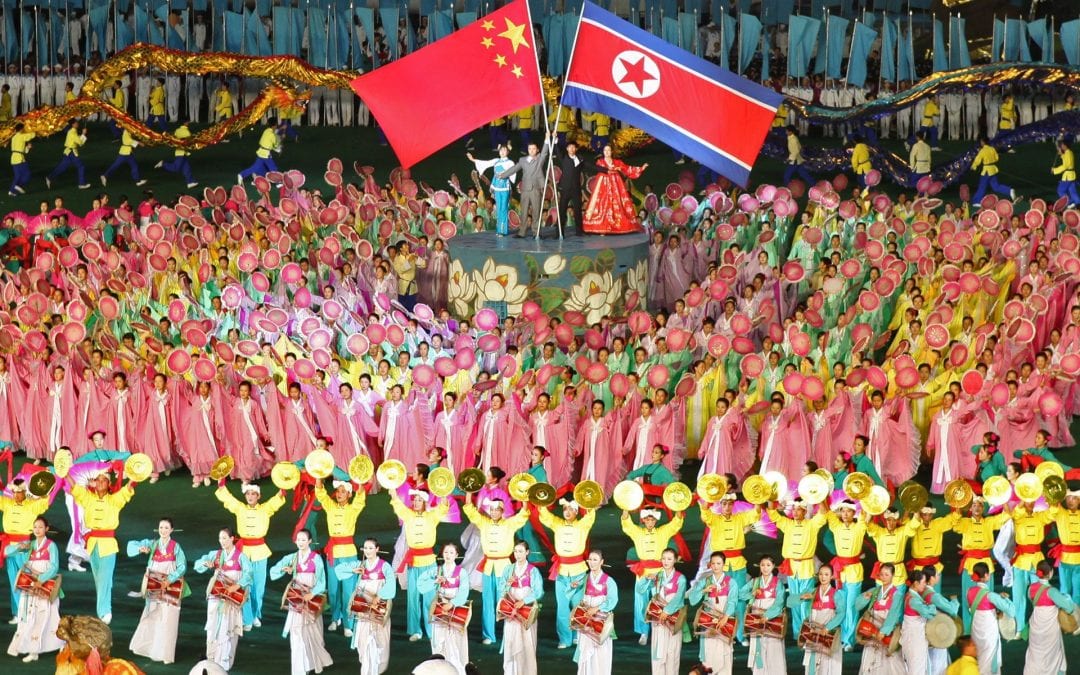By Guechbouy OEUNG (Min)
Guechbouy OEUNG (Min) looks at whether a reunified Korea would alter Sino-North Korean relations.
The meeting between North Korean and South Korean leaders during the Inter-Korean Summit on 27th April 2018, to end the Korean War is a major historical event after decades of tension between the two in the Korean peninsula.
The recent change in attitudes of the North Korea’s leader Kim Jong-Un has been interpreted into several hypotheses by many analysts. Some suggest that the supreme leader Kim Jong-Un has toned down his behaviour due to the successful deterrence of the increasing level of economic sanctions, others argue that the nuclear possession that North Korean tried to pursue is now able to reassure the country and prevent it from external attacks. A third hypothesis indicates that Kim’s government fear the unpredictable approach of United States President Donald Trump in the international arena. Regardless of what the implication was, both Pyongyang and Seoul have agreed to the end Korean War and establish a nuclear-free Korean Peninsula by beginning denuclearisation.
It can be seen that the peace talks between North Korea and South Korea was not purely bilateral. The US has been actively involved in addressing the Koreans issues in the Peninsula, while China did not seem to have many roles to play during the Inter-Korean Summit. Some analysts question whether North Korea is shifting its direction to the West instead of continuing the relations with its long-lasting ally, China.
Indeed, when Kim paid his second visit with Xi Jinping in Beijing before the summit with Trump, it was manifestly revealed that China is still a significant partner to North Korea, as the future of Trump-Kim Summit is unforeseeable; therefore, it is crucial for Kim to maintain good relations with China, say analysts. The meeting between Kim and Xi in Beijing has proved the effort of North Korea in maintaining regular contacts, building mutual understanding and mutual trust, and also strengthening strategic communications between the two countries.
Zhao Tong, an expert at the Carnegie-Tsinghua Center in Beijing argues that the visit of Kim to Beijing is an insurance policy that North Korea wants to obtain from China in case upcoming talks with the US are unsuccessful. Alternatively, North Korea wants to seek for more bargaining power from China when negotiating with the US, argues Cheong Seong-chang, a researcher at the Sejong Institute in Seoul.
During the meeting in Beijing, President Xi Jinping stressed that China would continue to have a positive relationship with North Korea, commended the commitment of Kim’s government in moving toward denuclearisation, bringing peace in Korean Peninsula.
For China, North Korea remains strategically essential to the security of its country, since North Korea is “a buffer state between its border and that of the US military ally.” If the North and the South are unified, China’s interests will be undermined, therefore, China will not permit the US to marginalise them, and will at all costs reach out for a four-way dialogue.
Guechbuoy OEUNG (Min) is a postgraduate student in Politics and International Relations at the University of Auckland.
Disclaimer: The ideas expressed in this article reflect the author’s views and not necessarily the views of The Big Q.
See Also:
Q+A: What’s really going on with North Korea?

